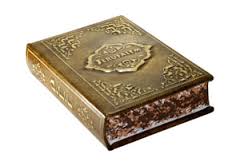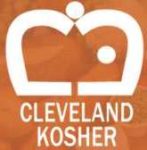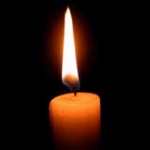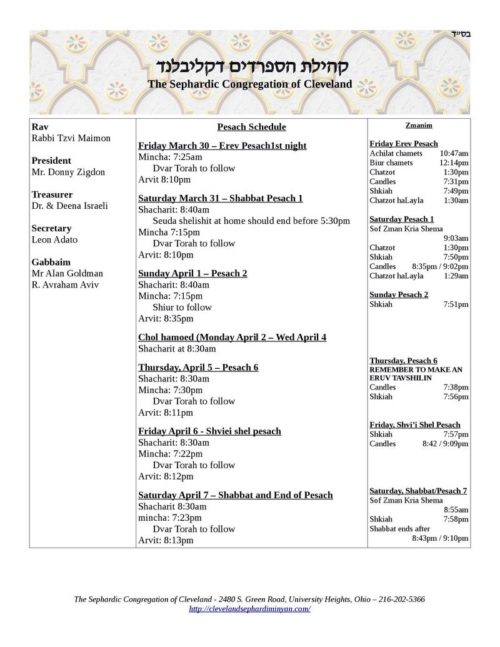 Please daven for Chaim Yehoshua ben Hadassah.
Please daven for Chaim Yehoshua ben Hadassah.
(View the Cleveland Tehillim List.)
May we be zocheh to hear b’soros tovos b’korov!
News, Info & Resources for the Cleveland Orthodox Jewish Community
 Please daven for Chaim Yehoshua ben Hadassah.
Please daven for Chaim Yehoshua ben Hadassah.
(View the Cleveland Tehillim List.)
May we be zocheh to hear b’soros tovos b’korov!
 This month, Bikur Cholim of Cleveland is proud to promote Liza (Ruti) Wolf as our Business of the Month. A licensed realtor with Howard Hanna Real Estate, Ruti has been working the real estate market in Cleveland for over 6 years and has assisted hundreds of buyers and sellers in the community. Thanks to her upbringing as a child of real estate experts, and her own extensive experience, Ruti has an insider’s understanding of the real estate market. “There’s almost nothing I haven’t seen and know how to maneuver around,” she said. “This is especially important for first-time homebuyers, who need a partner to help them navigate the transaction from beginning to end.”
This month, Bikur Cholim of Cleveland is proud to promote Liza (Ruti) Wolf as our Business of the Month. A licensed realtor with Howard Hanna Real Estate, Ruti has been working the real estate market in Cleveland for over 6 years and has assisted hundreds of buyers and sellers in the community. Thanks to her upbringing as a child of real estate experts, and her own extensive experience, Ruti has an insider’s understanding of the real estate market. “There’s almost nothing I haven’t seen and know how to maneuver around,” she said. “This is especially important for first-time homebuyers, who need a partner to help them navigate the transaction from beginning to end.”
Ruti is a generous sponsor and advocate of Bikur Cholim of Cleveland. As a real estate agent, she provides a valuable service to the members of our community by removing the stress associated with buying or selling a home. Ruti puts her skills and experience to work for her clients, making the process simple and easy in every way she can. She is highly available for her clients, who can reach her before, during, and after normal business hours. She’s also available on weekends; often the most convenient time for both buyers and sellers.
Thinking of selling? Ruti is available to give your home a free market analysis so you can find out what it’s really worth!
Contact Ruti today and put her expertise to work for you!
Liza (Ruti) Wolf
Realtor
Howard Hanna Real Estate
Phone 216-403- 6294
email lizadardashti-wolf@howardhanna.com
web www.lizadardashti-wolf.howardhanna.com
 Mazal tov to Rabbi Chaim and Suri Elias on the birth of a baby girl!
Mazal tov to Rabbi Chaim and Suri Elias on the birth of a baby girl!
Gesher is moving to a brand new suite at 1481 Warrensville Center Rd., near the corner of Mayfield Rd., that will be shared with our parent organization, Agudath Israel of Ohio. Our new facility will give us enhanced capacity and space to serve our clients and build on our successful Career Division. The new facility includes a conference room, classroom space, computer access, and more.
We will be open for business April 9th, immediately after Pesach. All phone numbers and emails will stay the same. We look forward to serving you at our new location.
 Correction and update to Pesach Guide page 29:
Correction and update to Pesach Guide page 29:
The Vaad Hakashrus Cleveland Kosher did not transact a mechiras chometz for Vienna Foods (formerly Simon Foods) this year.

We regret to inform you of the passing of Mrs. Betty Link, mother of Judy Oster, David Link and Michael Link.
Graveside funeral service will be at 1pm tomorrow, Wednesday, April 4, 2018 at the Young Israel section of Zion Memorial.
המקום ינחם אתכם בתוך שאר אבילי ציון וירושלים

We regret to inform you of the passing of Mr. Marvin Schubert, brother of Jack Schubert.
The funeral will be graveside 2pm tomorrow, Tuesday, April 3rd, 2018 at Berkowitz Kumin. Burial will be at Bet Olam Cemetary (corner of Chagrin and Richmond).
Shiva will be after Pesach, details will follow.
המקום ינחם אתכם בתוך שאר אבילי ציון וירושלים
 The Sephardic Congregation of Cleveland invites you to join us for Pesach davening. The full schedule can be found here or on http://clevelandsephardiminyan
The Sephardic Congregation of Cleveland invites you to join us for Pesach davening. The full schedule can be found here or on http://clevelandsephardiminyan
![]() Cleveland Heights and University Heights will have special pre-Pesach garbage collections this Friday, March 30, 2018.
Cleveland Heights and University Heights will have special pre-Pesach garbage collections this Friday, March 30, 2018.
Thank you to Councilman Jason Stein and City Manager Tanisha Briley, citymanager@clvhts.com. Thank you to Mayor Michael Dylan Brennan, and Councilmembers Michele Weiss and Mark Wiseman.
![]() Cleveland Heights and University Heights will have special pre-Pesach garbage collections this Friday, March 30, 2018.
Cleveland Heights and University Heights will have special pre-Pesach garbage collections this Friday, March 30, 2018.
Thank you to Councilman Jason Stein and City Manager Tanisha Briley, citymanager@clvhts.com. Thank you to Mayor Michael Dylan Brennan, and Councilmembers Michele Weiss and Mark Wiseman.
Gesher is moving to a brand new suite at 1481 Warrensville Center Rd., near the corner of Mayfield Rd., that will be shared with our parent organization, Agudath Israel of Ohio. Our new facility will give us enhanced capacity and space to serve our clients and build on our successful Career Division. The new facility includes a conference room, classroom space, computer access, and more.
We will be open for business April 9th, immediately after Pesach. All phone numbers and emails will stay the same. We look forward to serving you at our new location.

We regret to inform you of the passing of Mrs. Margot Rosenbaum, beloved wife of Mr. Manfred Rosenbaum, mother of the late Jeffrey Rosenbaum.
A chapel service will be held on Wednesday, March 28th, at 11 a.m. at Berkowitz Kumin Bookatz followed by burial at Mount Olive Cemetery.
Shiva Hours
המקום ינחם אתכם בתוך שאר אבילי ציון וירושלים

We regret to inform you of the passing of Mr. Dovid Enock, a former Clevelander. Shiva is in Lakewood.
המקום ינחם אתכם בתוך שאר אבילי ציון וירושלים
 Mazal tov to Shimon and Simhah Leah Friedman on the birth of a boy!
Mazal tov to Shimon and Simhah Leah Friedman on the birth of a boy!